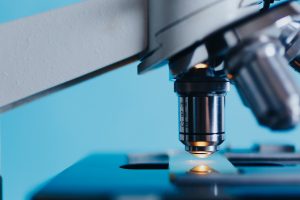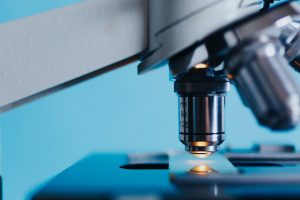
-
 Scientific investigations in biological sciences have been carried on since the beginning of the University of Lodz. First units representing this scientific discipline were created at the Faculty of Mathematics and Natural Sciences, which started functioning as early as in May 1945.
Scientific investigations in biological sciences have been carried on since the beginning of the University of Lodz. First units representing this scientific discipline were created at the Faculty of Mathematics and Natural Sciences, which started functioning as early as in May 1945.
Today the Faculty of Biology and Environmental Protection consists of 23 Departments in 5 Institutes, 3 autonomous Laboratories, 3 Field Research Stations, an Educational Botanic Garden, Natural History Museum and 4 research centers. The basic units conduct independent staff employment policy and are independent as regards scientific research.
Departments form institutes, the main task of which is the coordination of student education in Biology, Environmental Protection, Biotechnology, Microbiology, Genetics, Biomonitoring & Ecological Biotechnologies, EcoCity (from 2018/2019) and Forensic Biology (from 2019/2020).
In 2019 on the Faculty of Biology and Environmental Protection there were 358 employees, of which 223 were scientific-didactic staff, 77 were scientific-technical staff, 29 were administration staff and 30 were ancillary staff. Independent research staff were 32 full Prof.s and 90 habilitated doctors.
The Faculty of Biology and Environmental Protection has the right to confer on scientists title of professor (Prof.) and scientific degree of habilitated doctor (dr hab.) and doctor (dr) in the discipline of biological sciences. Research carried on at the Faculty is of pure, applied and methodological character. The scientific problems studied by the research staff of the Faculty focuse on three main themes: (1) biological environment, its present state, protection, exploitation and transformations; (2) structure and functions of plant, animal and microorganism cells; and (3) biomedical and biotechnological topics. Main scientific specialties carried on at the Faculty are the following: anthropology, evolutionary biology, geobotany, algology, mycology, lichenology, biochemistry, molecular biology, cytobiochemistry, biophysics, thermobiology, radiobiology, cell biology, cytology, cytogenetics, cytochemistry, cytophysiology, plant physiology, animal physiology (neurobiology, neurophysiology), zoology, hydrobiology, ecology, polar biology, environmental protection, microbiology, infectional biology, bacterial immunochemistry and immunobiology, immunology, biotechnology (of microbes, plants), genetics (plants, microbies), molecular genetics. The scientific research is carried on at various levels of the matter organization, i.e. at the level of molecules, cells, organisms, populations, and ecosystems.
The scientific activity and achievements of the Faculty of Biology and Environmental Protection may be assessed using various criteria: developed scientific schools of thoughts, number of publications (300 JCR papers yearly) or research grants (over 100 grants from external sources realized in 2016-2019). Scientific schools of thoughts created by Prof.s of the Faculty include: biochemical, biophysical, phytosociologial, of hydrobiology and polar biology, zoological, ecological, anthropological, of cytology and plant cytogenetics, of plant physiology, neurophysiological, microbiological and immunological.

 Scientific investigations in biological sciences have been carried on since the beginning of the University of Lodz. First units representing this scientific discipline were created at the Faculty of Mathematics and Natural Sciences, which started functioning as early as in May 1945.
Scientific investigations in biological sciences have been carried on since the beginning of the University of Lodz. First units representing this scientific discipline were created at the Faculty of Mathematics and Natural Sciences, which started functioning as early as in May 1945.
